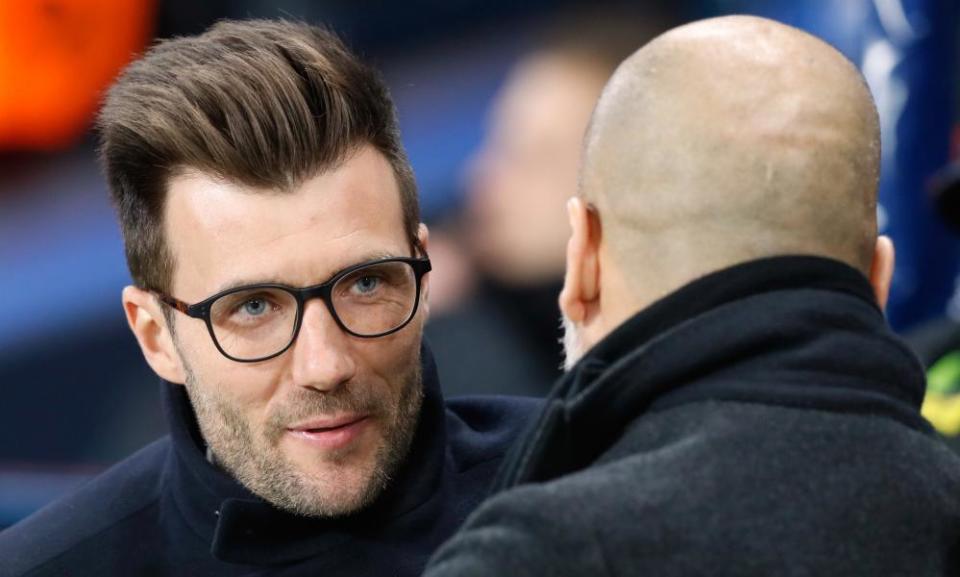US Soccer wants coaches. It's a shame the feeling isn't mutual

Earnie Stewart already had a busy 2020 in store when news broke at the end of December that Raphael Wicky had been hired as the Chicago Fire’s new head coach. Wicky had only been the United States’ Under-17 men’s national team boss since March but the Swiss still decided to jump ship, leaving Stewart with yet another position at US Soccer to fill heading into the new year.
In fact Stewart, US Soccer’s sporting director, has no fewer than five head coach positions to fill. The United States’ men’s soccer programme currently has vacancies at U-20, U-19, U-18, U-17 and U-16 level with Gregg Berhalter and Jason Kreis the only two head coaches on the books at this moment. The landscape is much the same on the women’s side, with five head coach positions also to be filled in the youth ranks.
US Soccer is currently a shell and Wicky’s departure continues a trend that should worry Stewart. The federation is finding it increasingly difficult to keep its coaches from the clutches of Major League Soccer clubs with Tab Ramos also recently leaving his long-term role as USA U-23s head coach for a job with the Houston Dynamo.
This is a trend that can be traced all the way back to 2009 when the Philadelphia Union poached then USA U-23s head coach and national team assistant Piotr Nowak. His successor, Caleb Porter, then used the same springboard to earn a job with the Portland Timbers with Brad Friedel the U-19s head coach for two years before taking over at the New England Revolution. Ramos held the fort for a number of years, switching between various youth positions, before leaving for Texas in October.
At least Friedel, Nowak, Porter and Ramos all had a background in American soccer before taking up a position with the USSF. Wicky played a handful of games for Chivas USA, but had no real track record to speak of in the States before being named manager of the USA’s U-17s side, and only ever coached in his native Switzerland. So did Wicky take the job in the first place as a stepping stone to MLS? Is that a route coaches can now plot in advance?
Related: Who is Diego Alonso, David Beckham's new manager at Inter Miami?
If indeed that is the case, US Soccer has a problem. While the club game is generally a short-term arena where teams sometimes chop and change their manager more frequently than they change their kit, federation coaching positions should be filled with the medium- to long-term in mind. National development is gauged over decades, not years and certainly not months, and so it’s important that are invested in the future.
It’s not just top-level MLS jobs that US Soccer coaches are being lured to either. The Chicago Fire and Houston Dynamo both endured disappointing seasons in 2019. Ramos and Wicky have taken on challenging jobs with absolutely no guarantee of success, only adding to the indictment served by their decision to leave the national set up.
The argument could feasibly be made that the traffic between US Soccer and MLS hints at a productive environment for coaching cultivation. That US Soccer is successfully producing the next generation of homegrown coaches and from homegrown coaches come homegrown players. But at youth level coaches are there to service players. At times over the past few years, particularly in this current MLS off-season, it has appeared the other way round.
The one exception to the trend, of course, is Berhalter who was hired as USMNT head coach from the Columbus Crew just over a year ago. But the duty of Berhalter is not to develop the American game for future generations, but to get results in the here and now. The criteria of is job is very different to that of the coaches working under him down the youth ranks. Turnover of coaches at the top level isn’t as damaging as it is beneath the surface.
Going on the interviews given by Wicky upon his appointment at the Chicago Fire, he was drawn by the vision and ambition of Georg Heitz, the sporting director the former FC Basel boss will now work alongside. “I felt that we all shared a similar vision for the club and how to move it forward,” Wicky explained. “That was important to me.” Meanwhile, Stewart has yet to demonstrate his vision for US Soccer beyond rearranging the office at US Soccer House so that all the coaches face each other and demanding all staff move to Chicago. Could it be that Wicky simply saw an organisation with a plan and an idea of what it wants to be as opposed to one that doesn’t?
American soccer as a whole finds itself at a critical juncture. Questions were rightly asked after the USMNT’s failure to qualify for the 2018 World Cup, with a presidential election offering the chance of a comprehensive overhaul of US Soccer. So far, though, very few answers and new ideas have been forthcoming. People like Ramos and Wicky were just as integral in ensuring soccer’s future in the country as Berhalter and yet they have left at this crucial point. That they have left for jobs in MLS, not even especially attractive ones, only hits home the point further.

